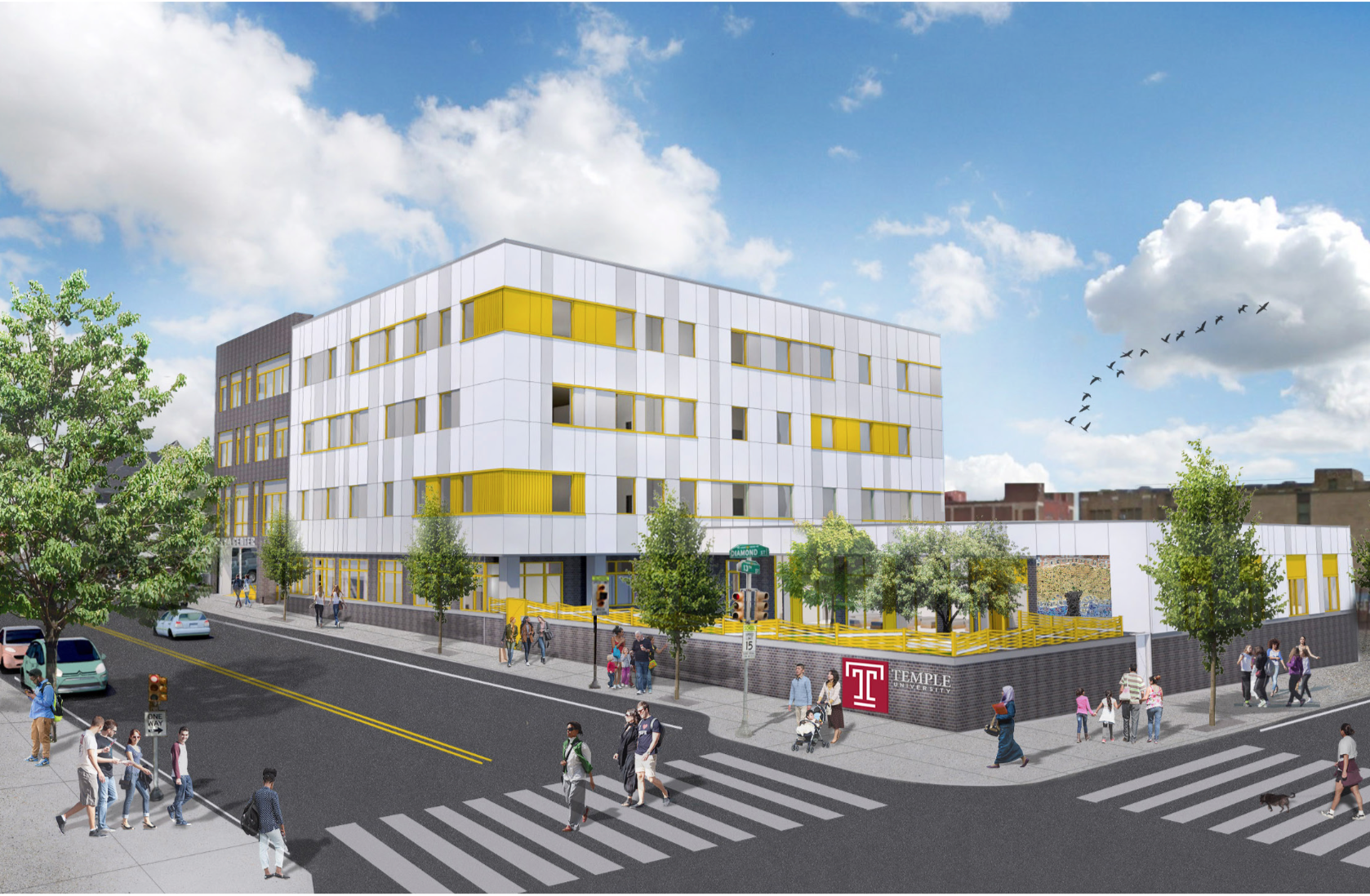City Council recalls Temple community center project

Temple University suffered a setback in City Council on Thursday when City Council President Darrell Clarke recalled a zoning bill that would have enabled the construction of a four-story preschool and dental clinic.
Dubbed the Alpha Center, the building is intended to rise on a surface parking lot that currently occupies the corner of 13th Street and Diamond Street on a block mostly occupied by homes inhabited by long-term residents, not students.
The center contains amenities designed to serve the entire community, not just those affiliated with the university. Even so, many people in the neighborhood fiercely oppose the project, arguing that it is a deceitful peace offering meant to pave the way for a hugely controversial football stadium that Temple plans to build on the other side of Broad Street.
Clarke recalled his zoning bill in the face of this persistent opposition. Neighborhood residents have attended almost every City Council meeting in 2018 to give speeches during the public comment period in opposition to the bill and the Alpha Center.
“They hire lobbyists they have a lot of folks on staff, and they can’t figure out a way to deal with that situation up in that neighborhood,” said Clarke. “Daycare, early education should be a no-brainer. How they couldn’t figure out how to get the support of that local community is beyond me.”
Temple University issued an anodyne email statement in response to this legislative setback.
“We believe the Alpha Center will provide valuable services to our North Philadelphia neighbors,” said Ray Betzner, a spokesman for the school. “Temple will continue to work with residents on this and other concerns.”
Clarke also introduced a bill on Thursday that aims to regulate conduct on rooftops around Temple. The legislation would ban a variety of activities including fighting, drinking, tanning, and “peering into skylights.” The ban, which wouldn’t apply to roof decks, comes as a response to consistent constituent complaints about students’ rooftop antics, Clarke said.
“The conduct of the students in these neighborhoods is ridiculous,” said Clarke. “They are up on these roofs throwing footballs, drinking, a couple kids fell off the roof.”
The shenanigans have aggravated an already tense relationship between area residents and the University, Clarke said.
Temple “decided to solicit non-Philadelphia students in a very aggressive way,” said Clarke. “Concurrent with that decision, they made a decision to not build any more student housing on campus, so it opened up an opportunity for the private sector to open all this student housing in the neighborhood.”
The rooftop bill’s penalties include fines up to $300 and “imprisonment for not more than 90 days.” Clarke said that the ordinance was inspired by similar legislation implemented in Kutztown, Pennsylvania, which faced similar town-gown problems.
Undergraduates frequently end up clashing with more established households in the neighborhoods they live in. In the 1990s and 2000s, the University of Pennsylvania recognized that reality and opted to concentrate more undergraduates on campus. The goal was to minimize strife with their neighbors in West Philadelphia.
Today, Penn has the smallest percentage of undergraduates living off campus of any of the city’s major universities, with just a little less than half of the undergrad population living in dorms. According to numbers provided by Temple, 60 percent of the undergraduates who live in their corner of North Philadelphia can bike or walk to campus. The other 40 percent live on campus.
WHYY is your source for fact-based, in-depth journalism and information. As a nonprofit organization, we rely on financial support from readers like you. Please give today.




